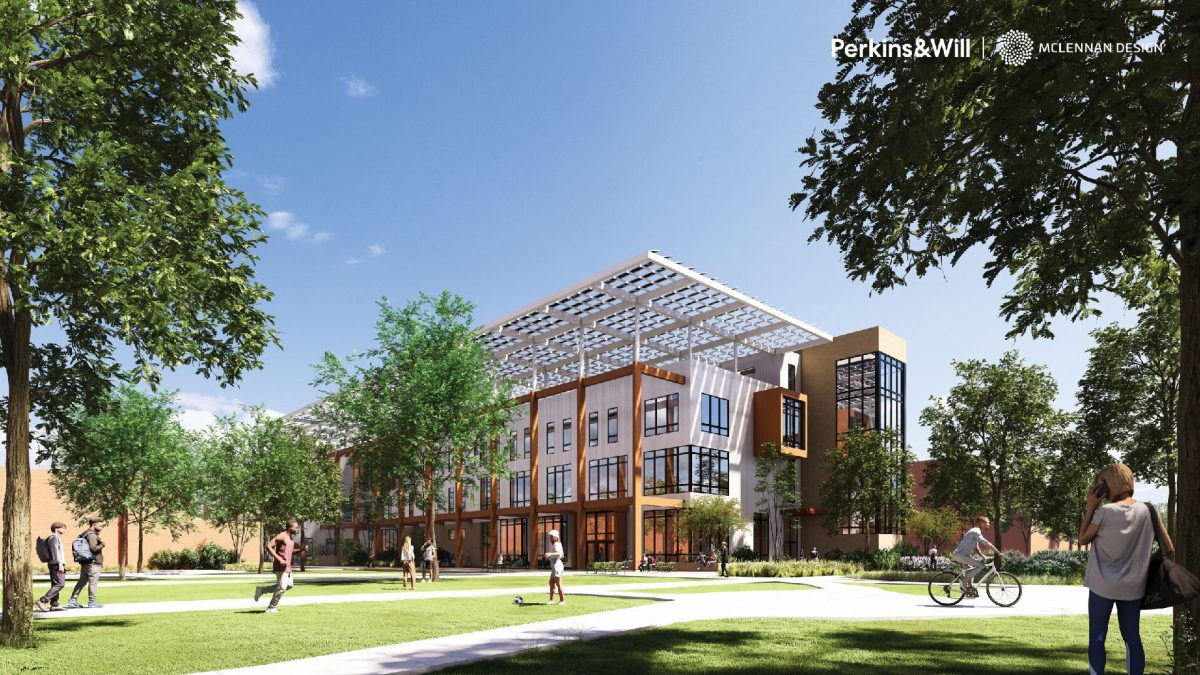Winona State University students will have to wait longer to see the Center for Interdisciplinary Collaboration, Engagement & Learning (CICEL) building completed. CICEL is set to replace Gildemeister and Watkins Halls and will be the next building on campus that follows a more sustainable approach.
Kenneth Janz, President of Winona State, stated the reason for the buildings setback is due to lack of funding.
“The Minnesota State legislature this year failed to pass a bonding bill and since they did not pass the bonding bill, our building, along with every other construction project across the state has been delayed.” Janz said.
A new package will go up for the next legislative session that will start in Spring 2025. The start date depends on when the legislature approves funding for it. When funding is approved, construction can start, which could take anywhere from 18-24 months. It could be a couple of years before it is open to the public.
The CICEL building also hopes to expand on Winona State’s continued commitment to sustainability. Since Winona State’s commitment to sustainability in 2007.
“We have already reduced our carbon emissions by 25%, our water savings by 16%, our utility cost by 23% and the solar panels alone generate 10% of our electrical needs.” Janz said.
At present, there are no future plans to convert current buildings into ones similar to CICEL, but Winona State is committed to making all buildings on campus more energy efficient and sustainable.
“I would love to see the CICEL building be a leader in sustainable architecture for all buildings across the Minnesota State System,” Taylor Dietz, a fourth-year biology environmental science major said. “I hope to see the CICEL building cut carbon emissions further for our campus and lead to a clean energy future.”
Both buildings, since opening in 1964, have not seen any major upgrades. As the times have changed, so have the students and teaching styles.
The math and statistics program, TRIO student support services and the OASIS advocacy center are all in Gildemeister. While Watkins is home to the arts and design program, and the computer science program. The CICEL project presents the opportunity to bring all these programs together in a collaborative environment.
CICEL is being designed with both access and equity in mind, and the TRIO office will be getting a brand-new space. Nhia Yang, the director of TRIO Student Support Services, is enjoying the aspect of designing a space centered around TRIO’s goals.
“Based on the meetings with the CICEL community, everyone is on the same page about creating an environment for students to come and to stay. Not only to drift from one class to another,” Yang says.
TRIO’s main goal is creating an environment for students to feel welcome, and to stay. It may be a couple years before CICEL is open to the public, but Winona State is working hard to meet the promise of sustainability and equity.










































Noah • Oct 9, 2024 at 12:33 pm
This was amazing Delia, can’t wait to read more!!!!
Noah • Oct 7, 2024 at 11:59 am
Delia did such a good job on this article, I cant wait to read more!!